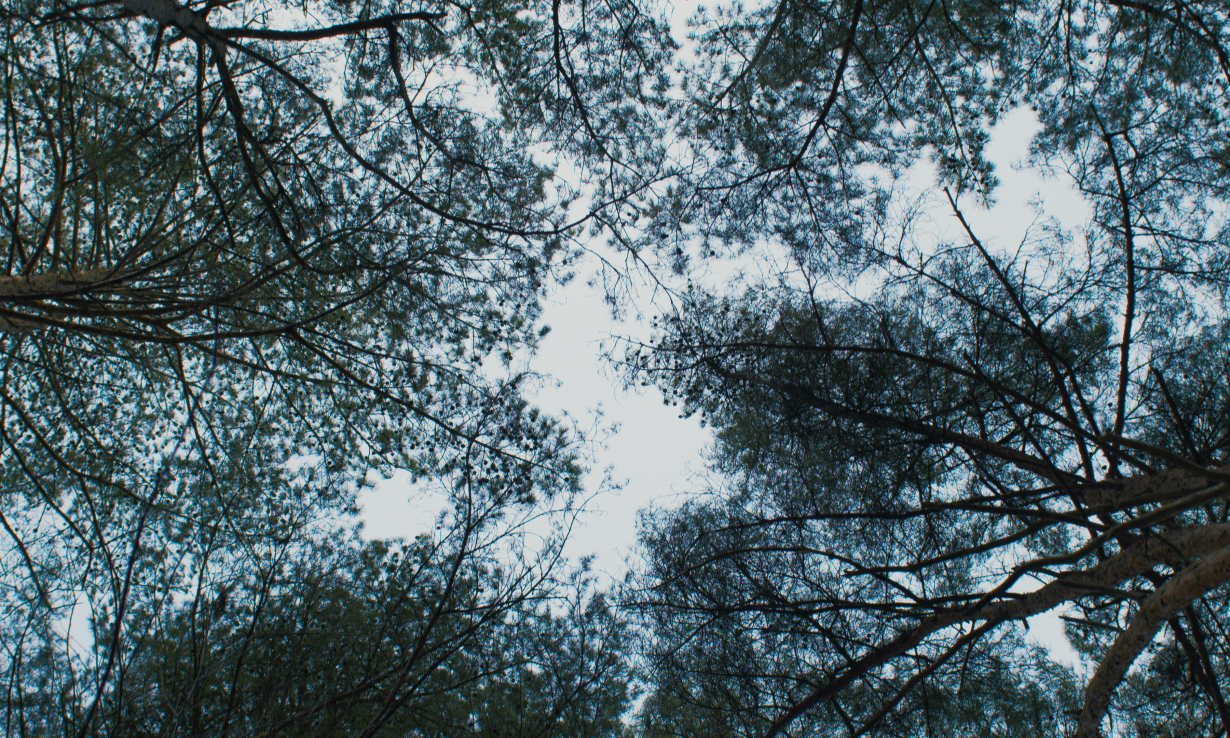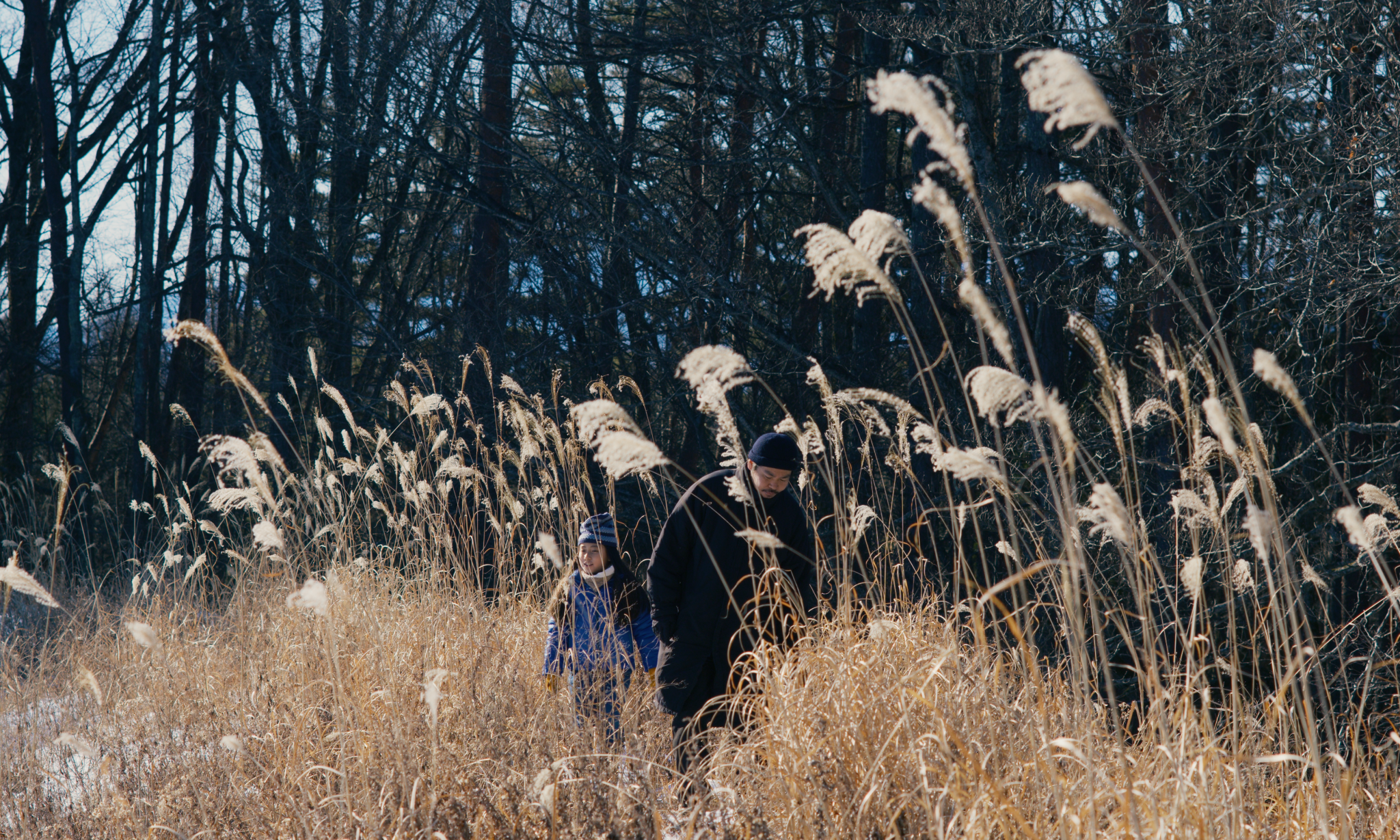Ryusuke Hamaguchi’s new film plays out like a fable recording the clash between capitalist extraction and ecological wellbeing
The latest feature by Ryusuke Hamaguchi – director of the critically-acclaimed, award-winning Drive My Car (2021) – starts with meditative, long shots of peaceful mountain living, the camera lens panning forest canopies and following protagonist Takumi as he goes about his daily chores. A rather taciturn character, he saws and cuts logs, collects stream-water for a local restaurant and teaches his daughter Hana to identify trees and spot traces left by deer. Not much happens besides the wholesome activities of what anthropologist Anna L. Tsing would call ‘the arts of noticing’ the interconnections between the multispecies world that surrounds us. At the end of the day Hana falls asleep. A montage replays or reinvents scenes she sees in the woods. She witnesses deer in her dream.
Hana’s search for deer brackets the entire film, but alongside this idyllic quest is a more unsettling story turning on a proposal to develop a glamping site nearby Takumi’s hut. This business venture – hastily put together by a talent agency in order to claim post-pandemic project funds – is adamantly opposed by the mountain’s villagers. At a presentation by two of the company staff, Takahashi and Mayuzimi, the villagers raise concerns about water pollution and campfires, and poke holes in the proposal’s flawed logistics. The staff – being mere talent agents – get nervous when questioned over decisions they neither have the knowledge to defend nor the power to influence, and Takahashi’s jaunty, business-like manner of speech starts to be characterised by stumbles and fumbles. Here, Hamaguchi masterfully captures the tensions between the company staff and the locals through his characters’ seemingly banal handling of objects like microphones – passed among the audience, eagerly picked up or fretfully put down by the company staff, or avoided altogether by one resolute cynic. On the one hand, these subtleties embed the clashes of two value systems in the formalities of dialogues and performance of authority; on the other they set out how such formalities can be resisted by refusing to engage in the designated way.

Evil Does Not Exist feels like a fable recording the clash between capitalist extraction and ecological wellbeing, where a local morality – valuing the purity of water, ecological balance and a social pact that holds upstreamers accountable for their environmental impacts – meets competition over resources, scalability and the transformation of ‘empty spaces’ into raw materials for economic progress. With camerawork that zooms in on the traces of nuanced desires and the pushes and pulls within and between people, as well as on how thoughts manifest as bodily reactions and habitual reflexes, Hamaguchi breaks down the myth of capitalist progress. He shows the individual, modular interactions that maintain the capitalist machine on a daily basis, but also how easily it breaks apart because of that. Despite wanting to finish her task, Mayuzimi sympathises with the locals and challenges her colleagues (“the locals are not so stupid as you think”, she warns at one point); meanwhile, after spending time in the forest helping Takumi collect water, Takahashi decides to quit the job and take a break from his urban life altogether. Towards the end Hana disappears into the woods and, after an anxious search by the villagers that sees a switch of gears and genres (the movie becomes more like a thriller), she is found, by Takumi and Takahashi, sitting in the middle of a meadow next to two deer. The ending has echoes of the tale of Princess Kaguya in the medieval Japanese story The Tale of Bamboo Cutter, who ascends to the moon and forgets about any attachments to the earthly world and its greed and corruption. In this sense, the plot’s sudden, abrupt abandonment of the glamping storyline and Hana’s Kaguya-like departure speaks to the larger sense of unease and pathos – outside of capitalism’s expansionist mission – of those who remain. We might say Hamaguchi presents a capitalism that’s provincialised rather than hegemonic, and that the pitfalls of life belie our precarious existence on a deeper level. But the larger sense of enigma in the film remains unexplained. Takumi’s guarding of forest ethics, Takahashi’s soul searching and Hana’s dedicated quest for deer feel like disconnected dots, arbitrary and haphazard. Nor does the film reveal the story behind Hana’s absent mother, who seems to have passed away but whose pictures are seen around Hana and her dad’s woodside cabin.
Despite its didactic title, Evil Does Not Exist sustains a feeling of indeterminacy. The film developed out of a musical collaboration with Eiko Ishibashi, with whom Hamaguchi worked for Drive My Car, which perhaps explains some of the plot’s disassembled feeling. Some of the footage was initially shot as a short (Gift, 2023), to accompany Ishibashi’s live performances. Here, Ishibashi’s score lingers eerily over Hamaguchi’s forests scenes like a spectre, and is often dissonant, which perhaps echoes the idea of a contaminated symbiosis. But such an abstract, experimental method does not necessarily work when Hamaguchi’s scripts are often so specific and grounded in concrete, daily matters. In this sense the film’s evocation of music and ecological drama feel manneristic. What it does present is a picture, of how forest lives and urban lives are finely entangled, how the ideological margins of each remain fluid, and how, by examining the everyday practices of being with nature and capitalism, we might escape monolithic, linear thinking – be it preaching of progress or doom – over a deeply confusing and precarious world.
